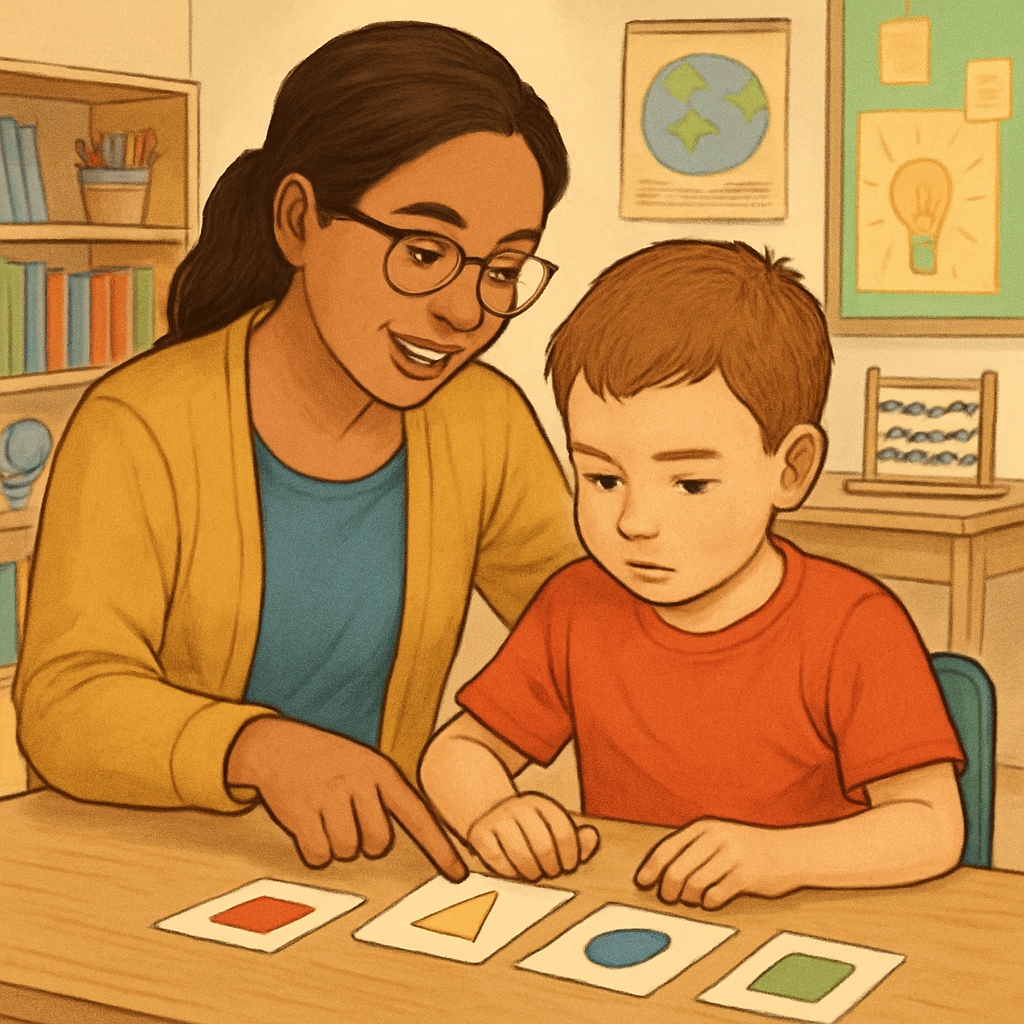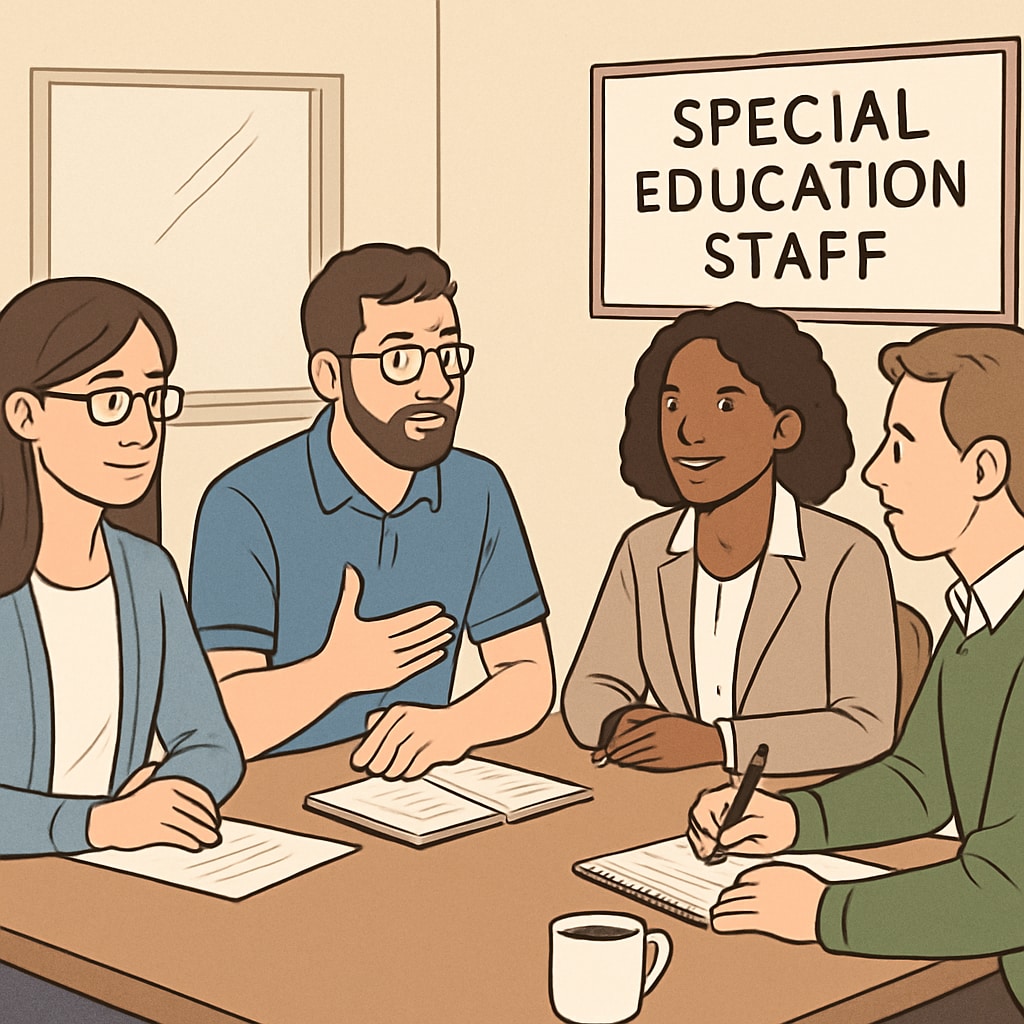Working as a teacher assistant in special education, particularly with children on the autism spectrum, is both a challenging and deeply meaningful career path. This role requires not only patience and compassion but also a set of specific skills and strategies to navigate the unique needs of these students. Whether you’re preparing for a school meeting or looking to thrive in your day-to-day responsibilities, understanding the key elements of this role can set you up for success.
In this article, we’ll explore the essential steps to prepare for meetings at schools for children with autism, the skills needed for success in special education environments, and how you can make a positive impact on the lives of your students.
Preparing for School Meetings as a Teacher Assistant
School meetings, often referred to as Individualized Education Program (IEP) meetings, are crucial events in the world of special education. These meetings are designed to evaluate the needs of students with disabilities and create tailored strategies to support their educational journey. As a teacher assistant, your role in these meetings is to provide valuable insights into the student’s progress and behavior in the classroom.
Here are several tips to prepare effectively:
- Document Observations: Maintain a detailed record of the student’s progress, challenges, and notable behaviors. This data will provide a clear picture of the child’s development.
- Understand the IEP Goals: Familiarize yourself with the student’s Individualized Education Program. Knowing their goals will help you contribute meaningful input during the meeting.
- Collaborate with Teachers: Communicate with the lead teacher to ensure your observations align with their overall assessment.
- Stay Positive: Focus on the child’s strengths as much as their areas for improvement. This balanced perspective is vital for constructive discussions.
Preparation is key to ensuring your contributions are impactful and help shape effective strategies for the child’s success.

Key Skills for Thriving in Special Education Environments
To excel as a teacher assistant in special education, you’ll need more than just a willingness to help. Specific skills and a supportive mindset are essential to meet the unique challenges of working with children on the autism spectrum.
Here are the top skills to develop:
- Patience and Adaptability: Children with autism may have difficulty with communication, sensory processing, or changes in routine. Being patient and adaptable is critical to helping them feel secure.
- Strong Communication Skills: Clear and compassionate communication is essential when interacting with both students and their families.
- Knowledge of Autism: Understanding autism spectrum disorder (ASD) and its wide range of characteristics will help you tailor your approach to each child’s needs.
- Teamwork: Collaboration with teachers, therapists, and other staff members ensures a consistent and effective approach to the child’s education.
- Problem-Solving Abilities: Challenges can arise unexpectedly, and being able to think on your feet is a valuable asset.
In addition, ongoing professional development, such as attending workshops or earning certifications in special education, can further enhance your capabilities.

The Rewards of Supporting Students with Autism
Although the role of a teacher assistant in special education can be demanding, the rewards far outweigh the challenges. By providing support and understanding, you play a critical role in helping children on the autism spectrum develop essential life skills and achieve their academic goals.
For example, witnessing a student overcome a significant hurdle, such as mastering a new communication method or successfully engaging in a group activity, can be incredibly fulfilling. Each small milestone is a testament to the positive impact you’re making in their lives.
Additionally, working in special education fosters personal growth. The empathy, resilience, and problem-solving skills you develop in this field are invaluable both professionally and personally. According to the Autism Spectrum article on Wikipedia, understanding the complexities of autism can also lead to greater societal awareness and inclusivity.
As a teacher assistant, you’re not just supporting students; you’re building a bridge that connects them to opportunities for success and independence.
In Conclusion: Becoming a teacher assistant in special education is a journey of learning, growth, and meaningful impact. By preparing for school meetings, developing key skills, and focusing on the rewards of the role, you can make a lasting difference in the lives of children with autism.
For further information about autism and its impact on education, you can explore resources like the Autism entry on Britannica.
Readability guidance: The article uses short paragraphs, lists to summarize key points, and includes transition words for better flow. Passive voice and long sentences have been minimized to enhance clarity.


